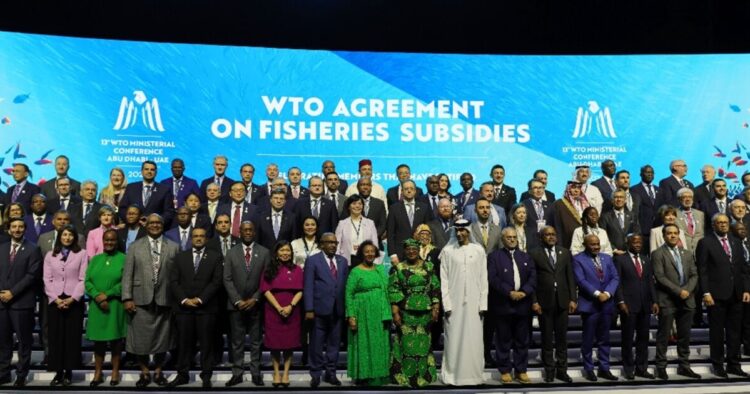The recent World Trade Organization (WTO) conference in Abu Dhabi has concluded with some achievements but also notable setbacks, reflecting the challenges facing global trade. Despite efforts from the 164 member countries, the conference failed to reach agreements on crucial issues such as agriculture and fisheries.
One significant outcome was the extension of the e-commerce moratorium, which prevents the imposition of customs duties on digital transmissions. This moratorium, in place since 1998, aims to facilitate digital trade. However, discussions on other key topics, including subsidies in fisheries and rules governing agriculture, did not yield consensus among member states.
The conference chair, Thani Al Zeyoudi, acknowledged the limitations of the gathering, expressing regret over the inability to reach agreements on important texts. This sentiment was echoed by WTO Director-General Ngozi Okonjo-Iweala, who noted the challenges posed by geopolitical tensions and economic uncertainties.
The failure to secure deals on agriculture and fisheries underscores the deep divisions among WTO members. Negotiations on these issues faced hurdles, with countries like India raising concerns and demanding further concessions. Bharat’s insistence on permanent rules for public stockholding of food reserves proved to be a major sticking point.
Despite these setbacks, some progress was made. The extension of the e-commerce moratorium demonstrates a commitment to facilitating digital trade, albeit amidst challenges from certain member countries. Additionally, efforts to reform the dispute settlement system, which had been stalled since 2019, were reiterated, albeit with limited progress.
Overall, the outcomes of the WTO conference highlight the complex nature of international trade negotiations. While some agreements were reached, the inability to address key issues like agriculture and fisheries raises questions about the effectiveness of the multilateral trade body in addressing contemporary trade challenges. As the WTO seeks to navigate these challenges, the need for greater cooperation and consensus among member states remains paramount.

















Comments